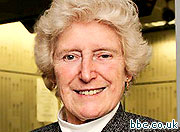A major new report calling for Christianity to be radically downgraded in public life has been ‘hijacked by humanists’, the Church of England has said.
The Commission on Religion and Belief in British Public Life, headed by Baroness Butler-Sloss, has proposed a number of measures including scrapping Christian assemblies, ending religious selection for faith schools and changing religious education to be more diverse.
It points to what it describes as a “general decline” in Christian affiliation, and calls for aspects of public life such as the coronation to reflect the ‘pluralistic’ nature of Britain.
The report also alleged that the syllabus for religious education portrays religions “only in a good light, focusing on the role of religions in encouraging peace, harmony and caring for the poor”.
Neutral
But Malcolm Brown, Director of Mission and Public Affairs for the Church of England, said the Commission is embracing “the fiction that the state should adopt some kind of neutral position in order to accommodate (and, presumably, manage) the diversity of religions and beliefs within society”.
The report draws upon figures showing a growing number of people identifying as non-religious. Yet the 2011 Census revealed that 33 million people identified as being Christian, compared to just 15,067 people who said they were humanists, and 29,267 atheists.
Brown highlighted that much of the report’s reasoning was based on the “problematic” assumption that “No religion” always means “humanism”.
Sad waste
He said the report is a “sad waste of a glorious opportunity”, and he accused the Commission of being captive to a kind of “liberal rationalism” that is losing the wider argument.
Brown asserted that a secular constitution “marginalises all religions”.
The Commission was set up by the Woolf Institute, which looks at the relations between Christians, Muslims and Jews. Its patrons include the former Archbishop of Canterbury Rowan Williams.
Misguided
The Commission’s members were drawn from the British Humanist Association, major UK religions, academics, and the Equality and Human Rights Commission.
A Department for Education spokesman responded to the report, saying that collective worship in schools plays an important role and “helps shape fundamental British values of tolerance, respect and understanding for others”.
And a source close to the Education Secretary Nicky Morgan said that those who think she will pay attention to the “ridiculous recommendations” are “sorely misguided”.

